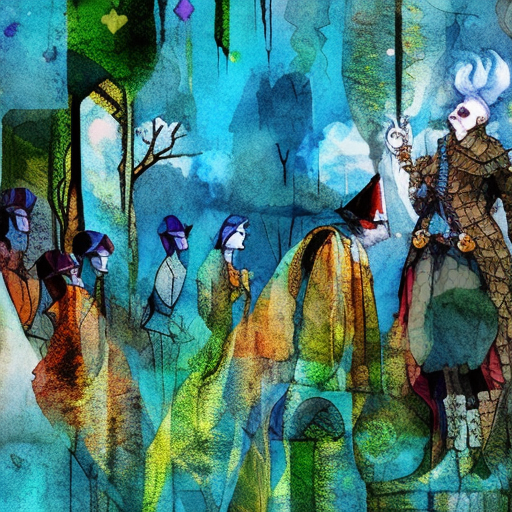One-line summary:
Shakespeare’s comedy “As You Like It” explores themes of love, identity, and the power of nature through a series of mistaken identities and romantic entanglements in the Forest of Arden.
Introduction:
“As You Like It” is a delightful comedy written by William Shakespeare in the late 16th century. Set in the French countryside and the enchanting Forest of Arden, the play follows the journey of Rosalind, the daughter of a banished duke, as she navigates the complexities of love, identity, and the transformative power of nature. Through a series of mistaken identities and romantic entanglements, Shakespeare invites us to reflect on the nature of love, the fluidity of gender roles, and the importance of finding one’s true self.
Love and Deception:
Love is a central theme in “As You Like It,” and Shakespeare explores its various forms throughout the play. The story begins with Rosalind and Orlando falling in love at first sight, but their courtship is interrupted when Orlando is banished by his jealous older brother, Oliver. Rosalind, disguised as a young man named Ganymede, ventures into the Forest of Arden with her cousin Celia and the court fool, Touchstone. In the forest, Rosalind encounters Orlando, who is unaware of her true identity, and they engage in witty banter and playful exchanges. Through their interactions, Shakespeare explores the complexities of romantic love, highlighting the transformative power it holds over individuals.
Deception also plays a significant role in the play, as characters assume disguises and adopt false identities. Rosalind’s decision to disguise herself as Ganymede allows her to observe Orlando’s true feelings for her while providing comedic relief through mistaken identities. Additionally, the character of Touchstone, the court fool, uses his wit and humor to deceive others and provide social commentary. Shakespeare uses deception as a means to explore the blurred lines between reality and appearance, challenging societal norms and expectations.
Nature and Identity:
The Forest of Arden serves as a metaphorical space where characters can shed their societal roles and discover their true selves. In this natural setting, characters find freedom, solace, and a sense of renewal. Rosalind, in her disguise as Ganymede, embraces her masculine side and gains a newfound confidence. The forest also provides a sanctuary for other characters, such as the melancholic Jaques, who finds solace in the simplicity and beauty of nature. Through the juxtaposition of the courtly world and the forest, Shakespeare highlights the transformative power of nature in shaping one’s identity.
The play also explores the fluidity of gender roles and challenges traditional notions of masculinity and femininity. Rosalind’s disguise as Ganymede allows her to explore the complexities of gender, questioning societal expectations and norms. Shakespeare presents a world where gender is not fixed but rather a performance, blurring the lines between male and female identities.
Key Takeaways:
- Love can be a transformative force, capable of changing individuals and their perceptions of themselves.
- Deception and mistaken identities can lead to comedic situations and provide social commentary.
- Nature has the power to heal, transform, and provide a sanctuary for self-discovery.
- Gender roles are fluid and can be challenged, allowing individuals to explore different aspects of their identity.
“All the world’s a stage, and all the men and women merely players.” – Jaques
In conclusion, “As You Like It” is a charming comedy that explores themes of love, identity, and the power of nature. Through mistaken identities, witty banter, and the transformative nature of the Forest of Arden, Shakespeare invites us to reflect on the complexities of love, the fluidity of gender roles, and the importance of finding one’s true self. With its memorable characters and timeless themes, this play continues to captivate audiences and remind us that, ultimately, we have the power to shape our own destinies.












